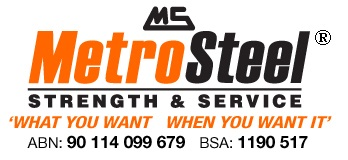While protective treatments are designed to prolong the life of many metals, those which are used in high temperature situations are particularly vulnerable. Those materials which are designed to operate in high temperatures eg, furnaces, rooftop HVAC systems, kitchen ranges and barbecue burners, can find themselves subject to weakening and problematic stress fractures.
Of course one way to reduce these problems is to ensure that you incorporate a metal that can operate under the high temperatures your design requires. Inconel 625 for example is a specially treated metal that can operate comfortably in temperatures of up to 2000°F or 1093°C. However even super-metals such as this will weaken if exposed to certain conditions. Let’s take a closer look at the type of conditions we’re talking about.
Metal dusting
When heated to high temperatures certain components in the metal and can carbonise. When this happens any iron alloy in the metal can become over saturated or over-carbonised. When excess carbon builds up it can cause the metal to become brittle and stops it from becoming flexible (low ductility). Eventually stress fractures can and do occur.
Thermal fatigue
Even when metal survives the heat process, rapid heating and cooling of most materials creates a temperature gradient that differs from the internal core. This in turn causes a differing rate of expansion and contraction. Gradually, over time, and under the repeated strain, the metal will begin to crack. For these reasons listed here, if your product is designed to be immersed in and out of heated temperatures, then aluminisation is essential.
So what exactly is it and why is it so effective?
As the name suggests aluminised steel is a process in which metal has been hot-dipped on both sides with a silicon-aluminium alloy. As it diffuses into the steel it forms a tight protective layer or skin over the existing metal base. Now, as well as being super-resistant to heat, it’s also successfully used to prevent oxidisation (rust) and corrosion, while also enhancing the metals wear resistant properties.
The results are that once treated, metal can be used time and time again under extreme heat conditions without showing signs of fatigue, stress or brittleness. Ultimately this extends the life of just about any metal product and is why it is such an important process.
If you have a particular project in mind that requires materials or parts which need to be subjected to high degrees of heat, then you night want to talk to us about aluminisation. To find out more, contact Metro Steel on 07 3204 1000 and talk to one of our friendly experts today.
 Working Hours - Mon – Fri 7:00 AM – 4:00 PM
Working Hours - Mon – Fri 7:00 AM – 4:00 PM Talk to an Expert (07) 3204 1000
Talk to an Expert (07) 3204 1000